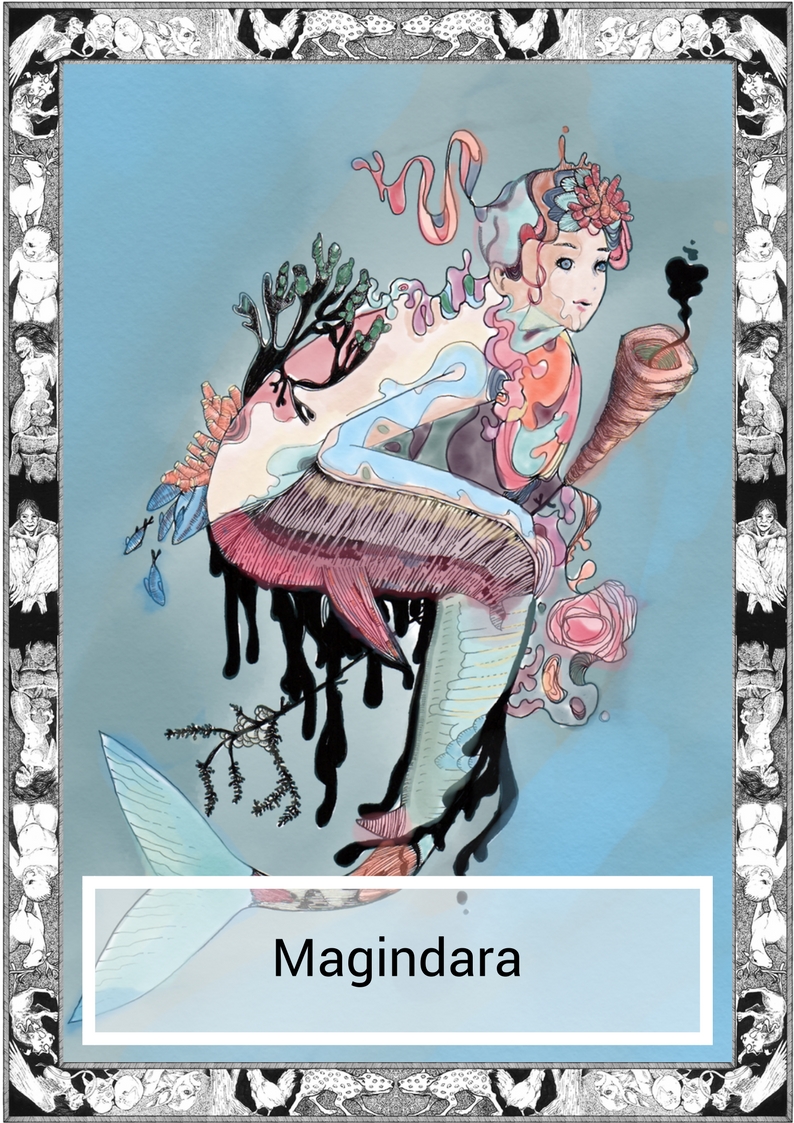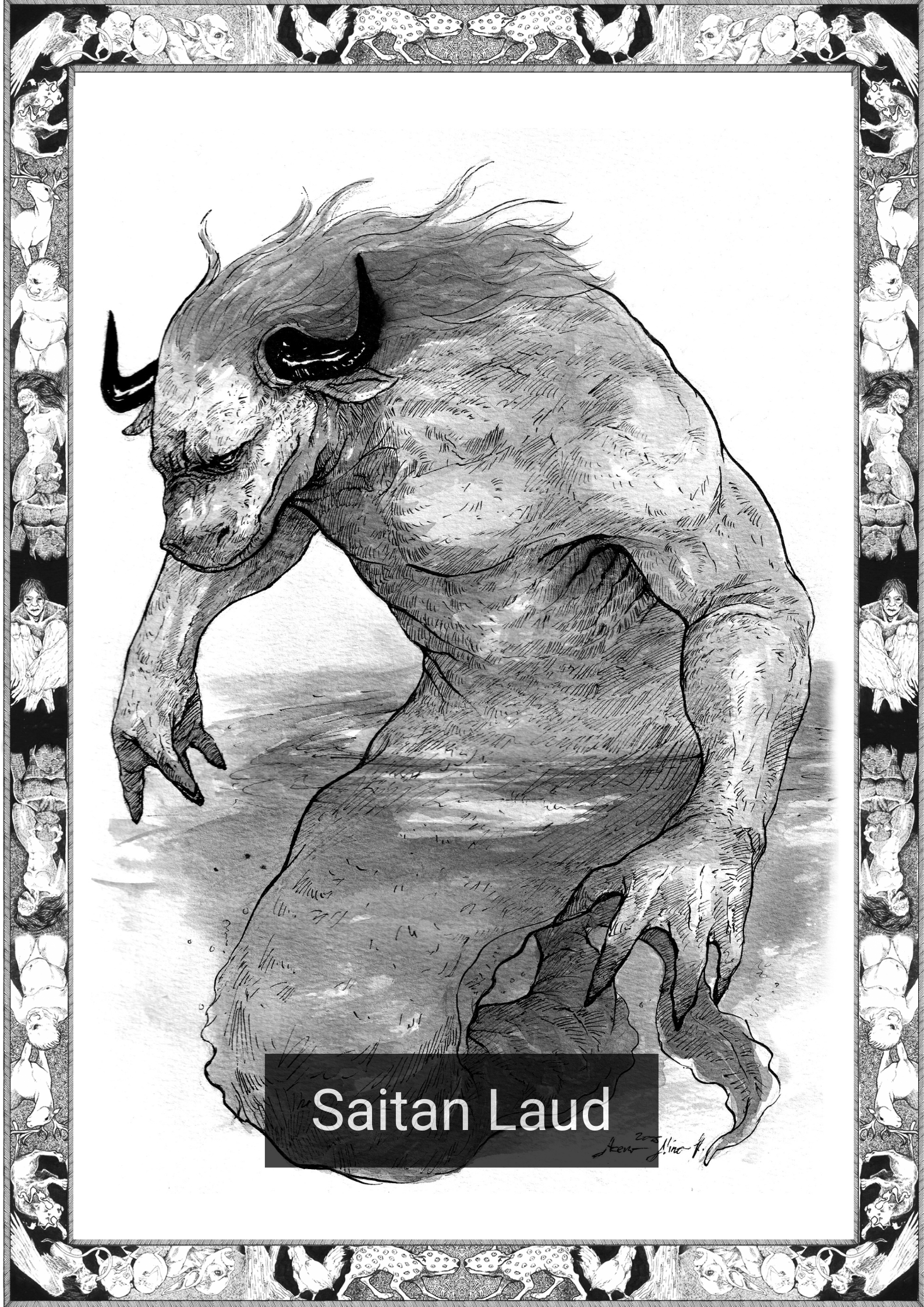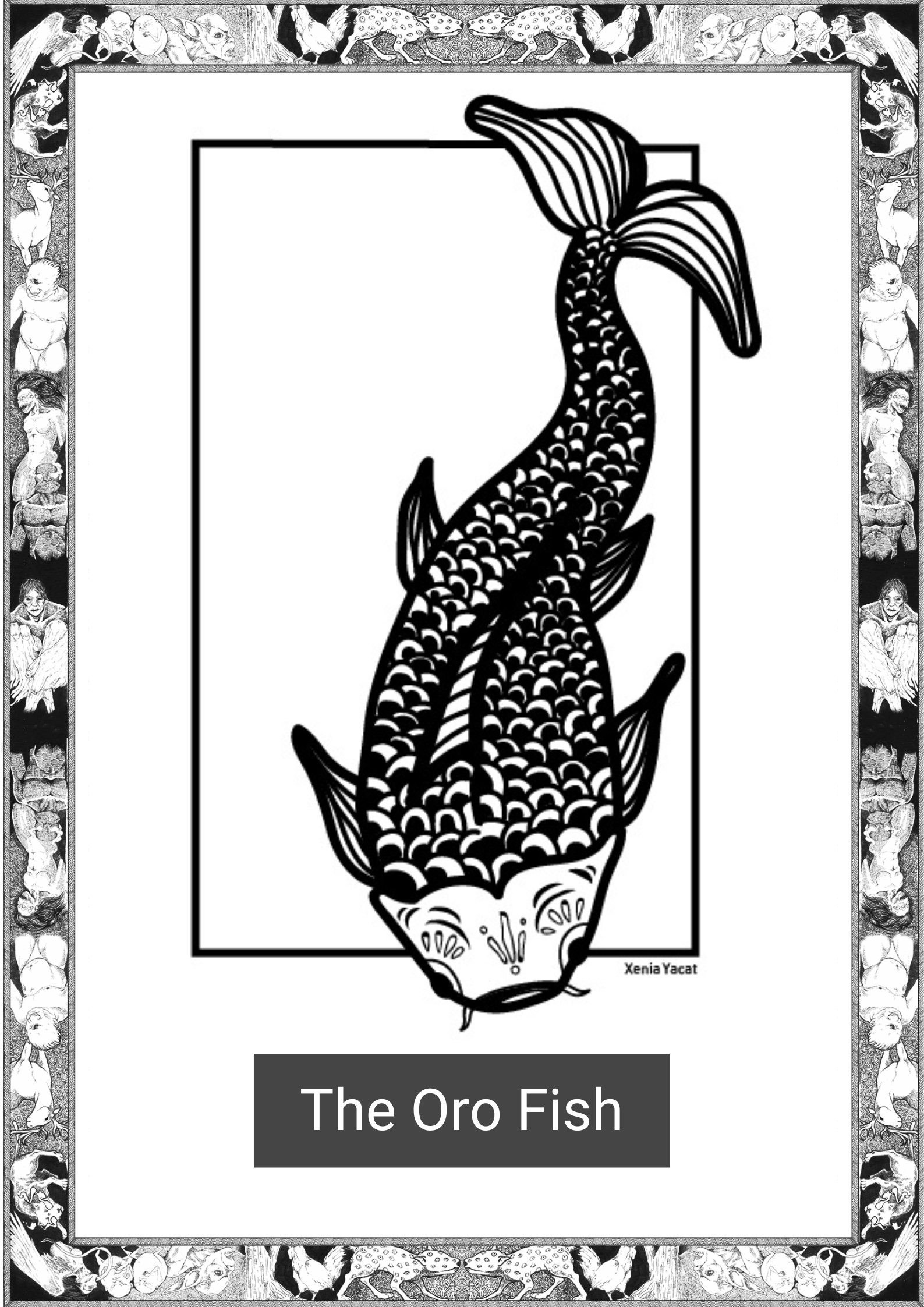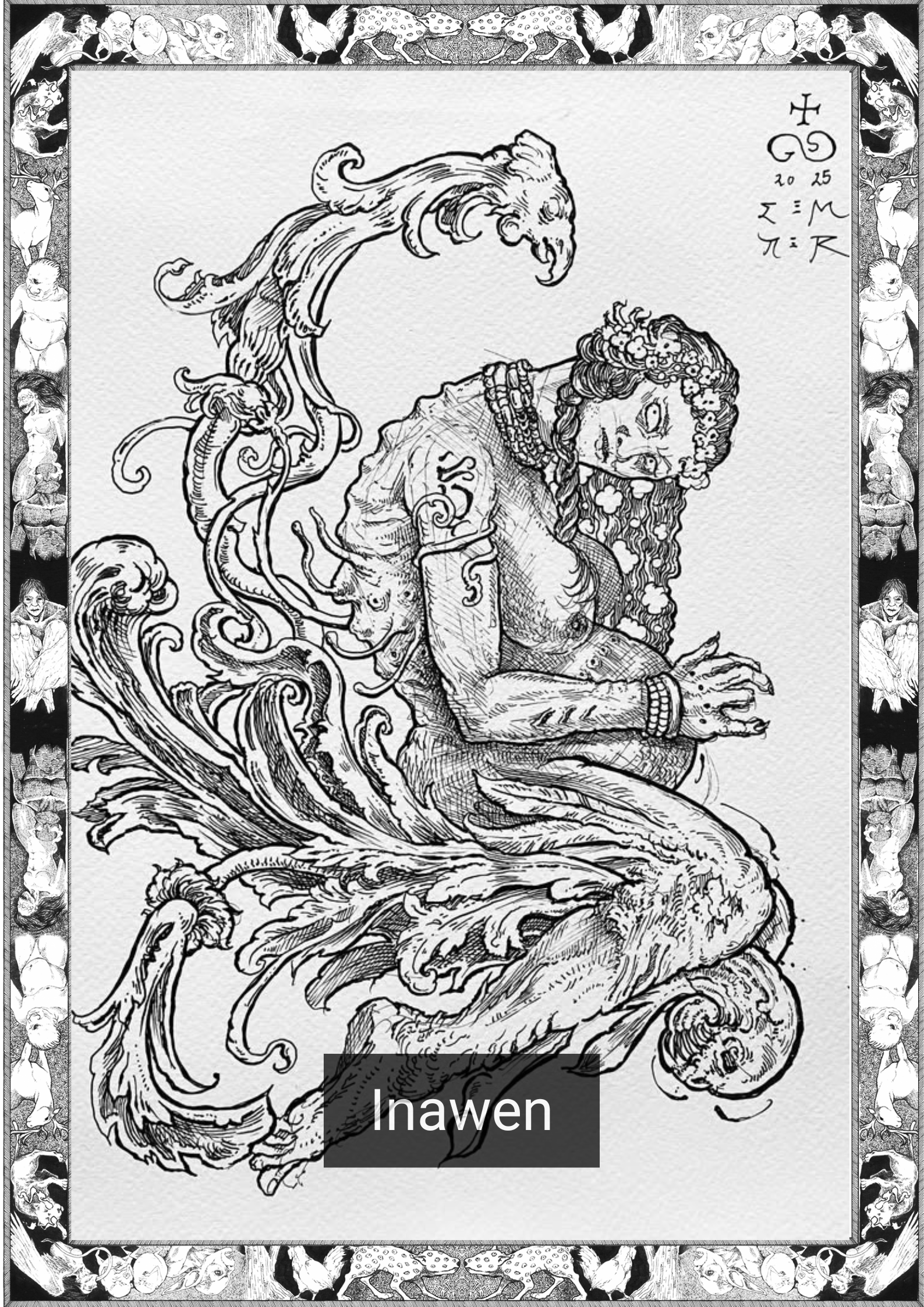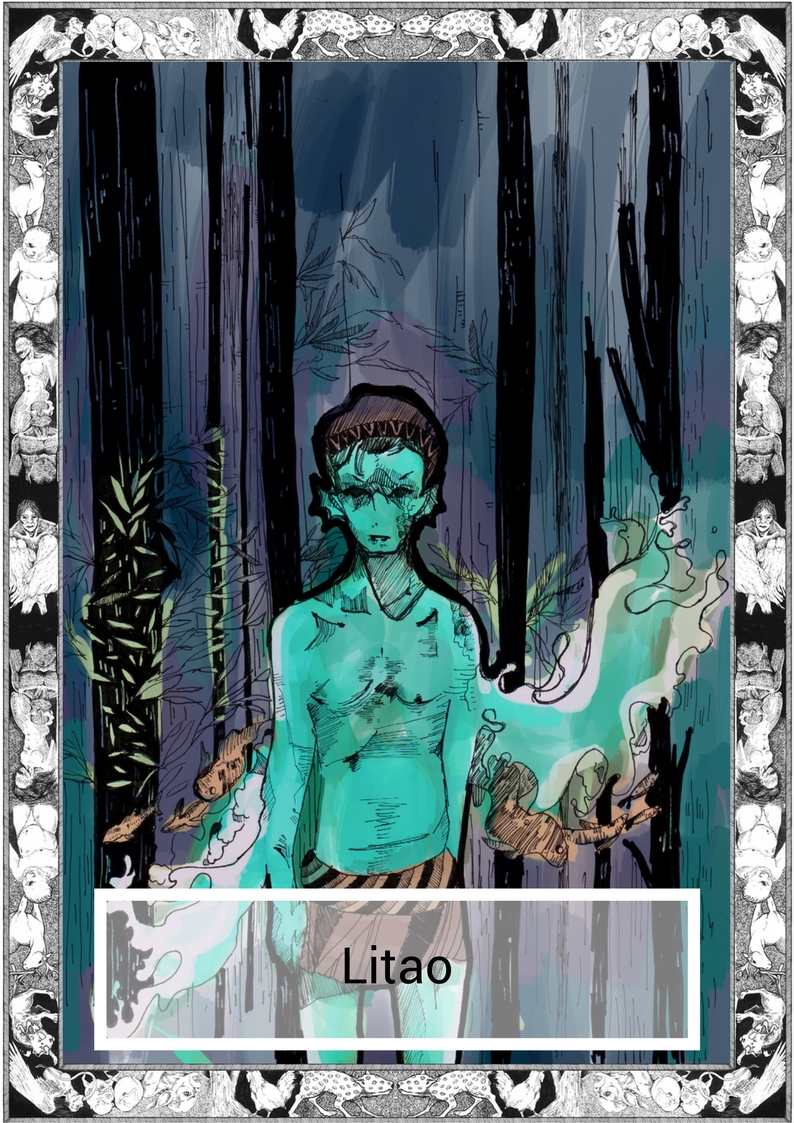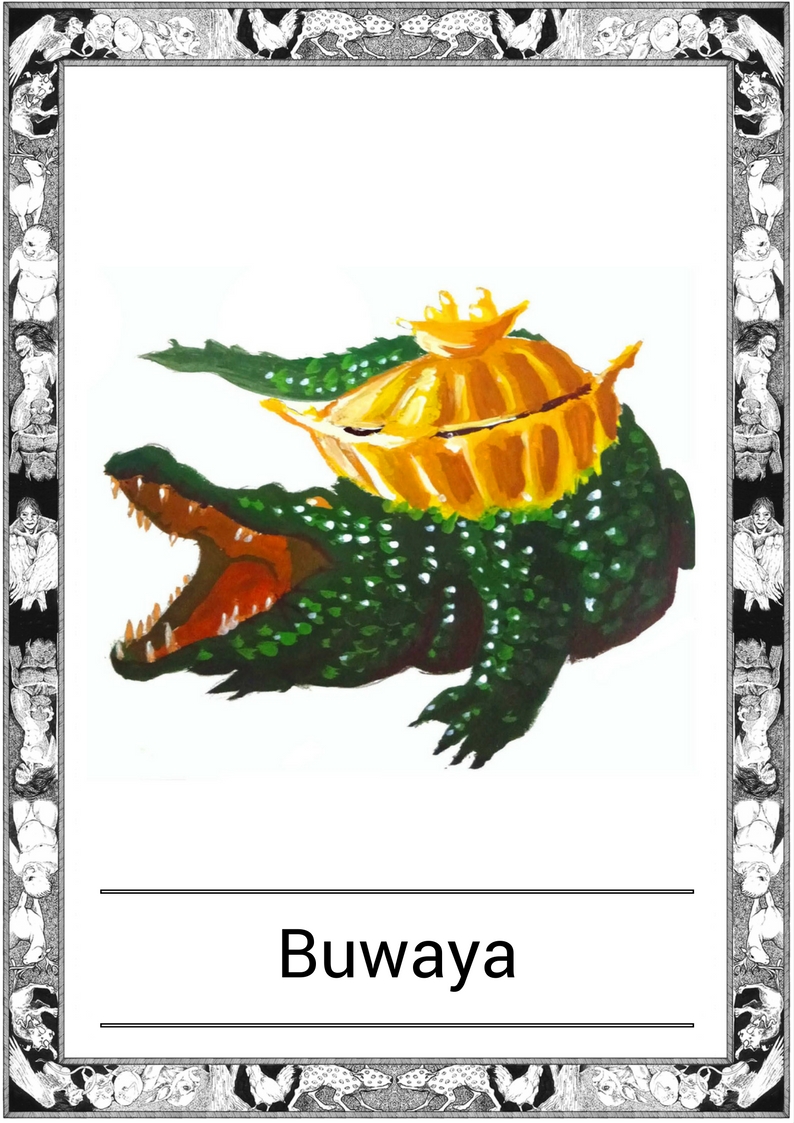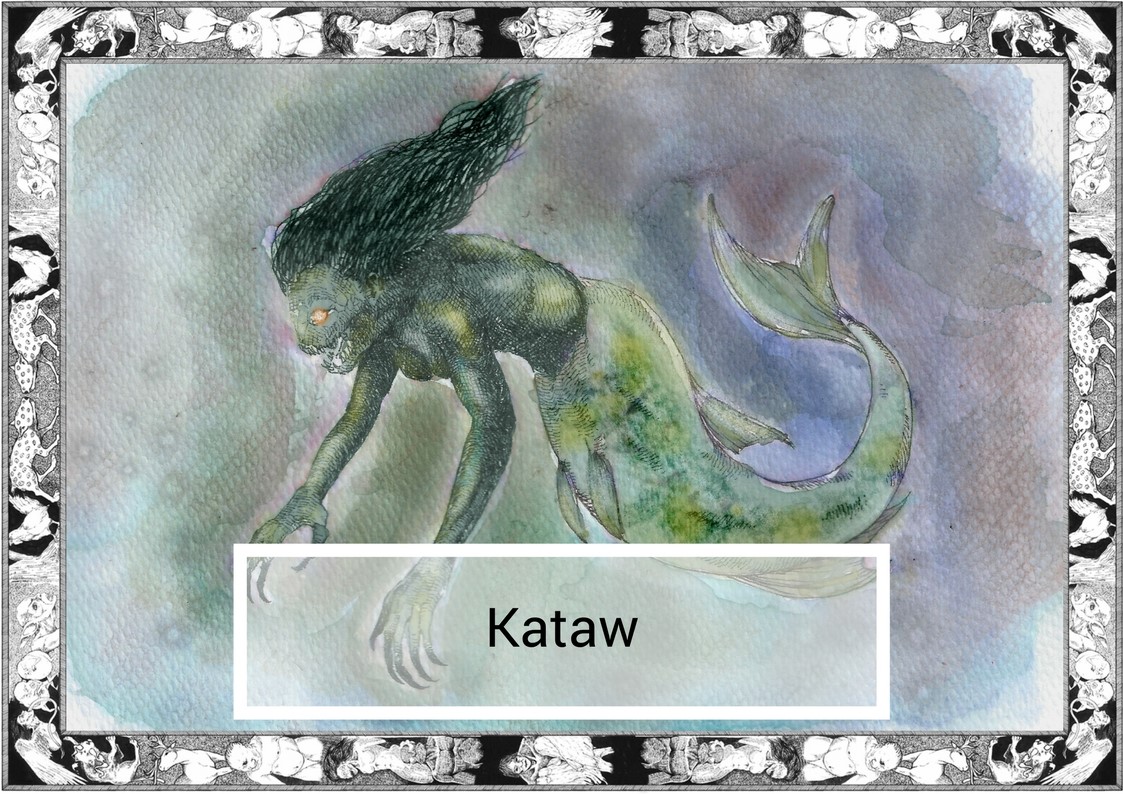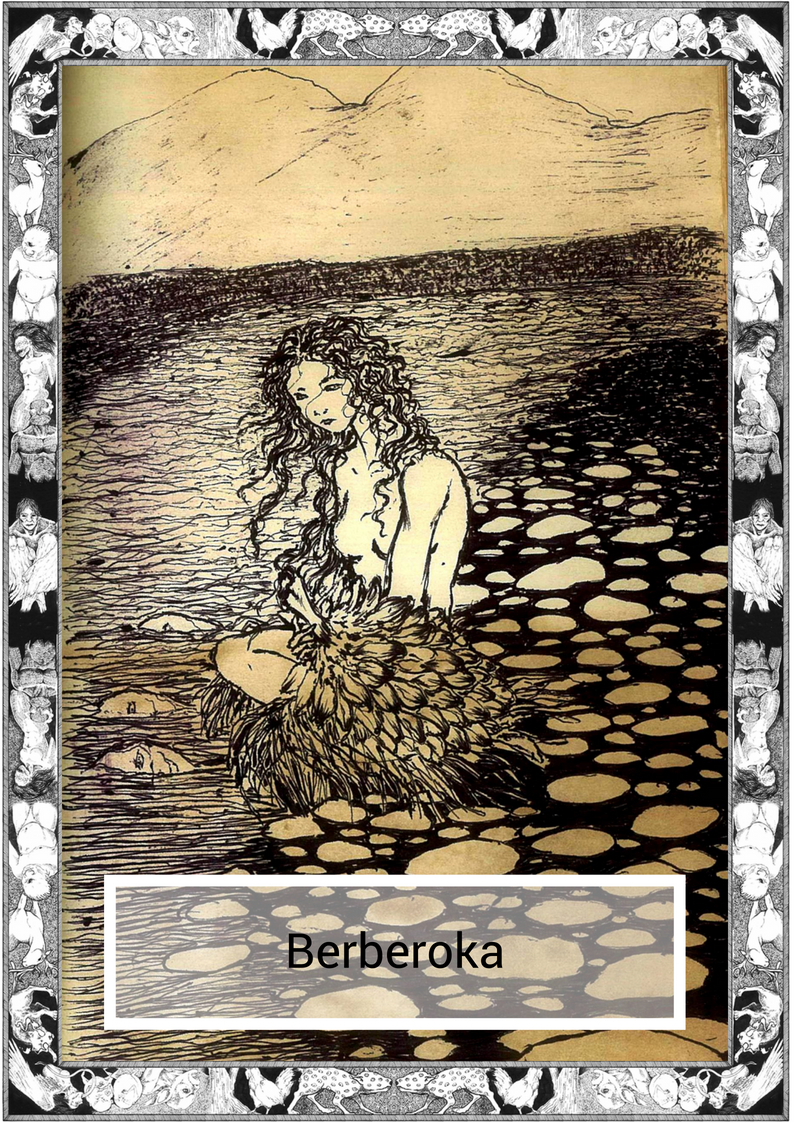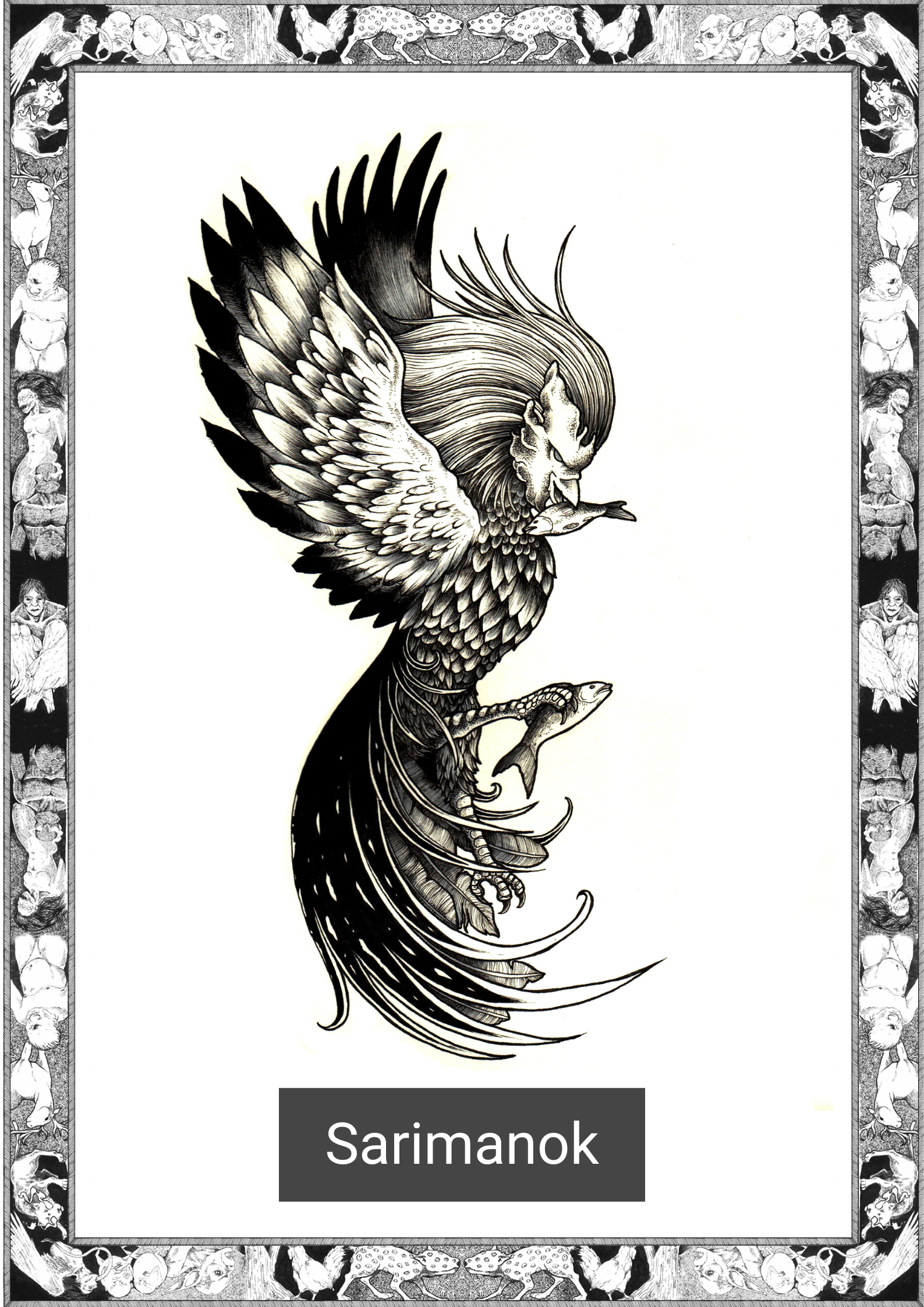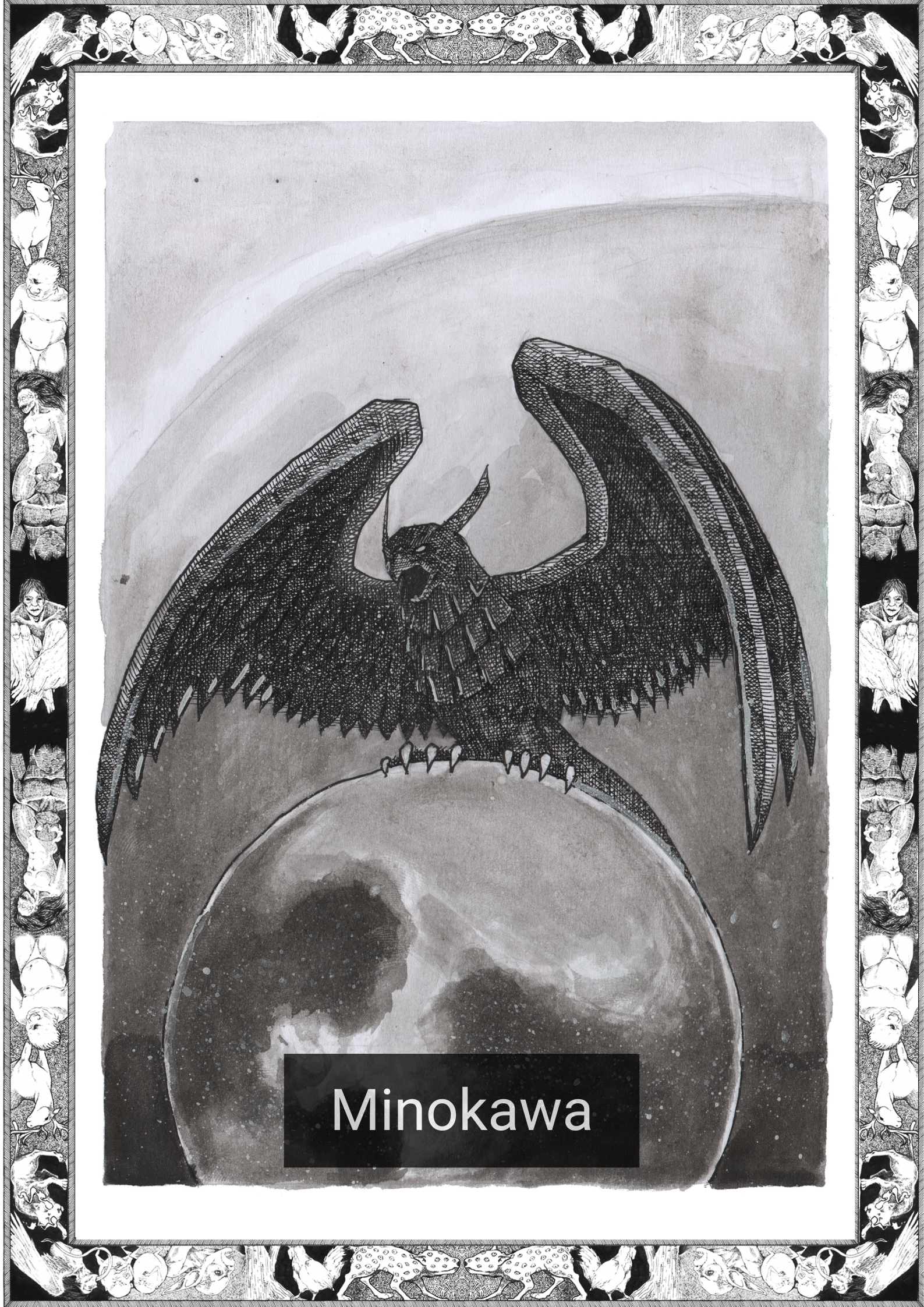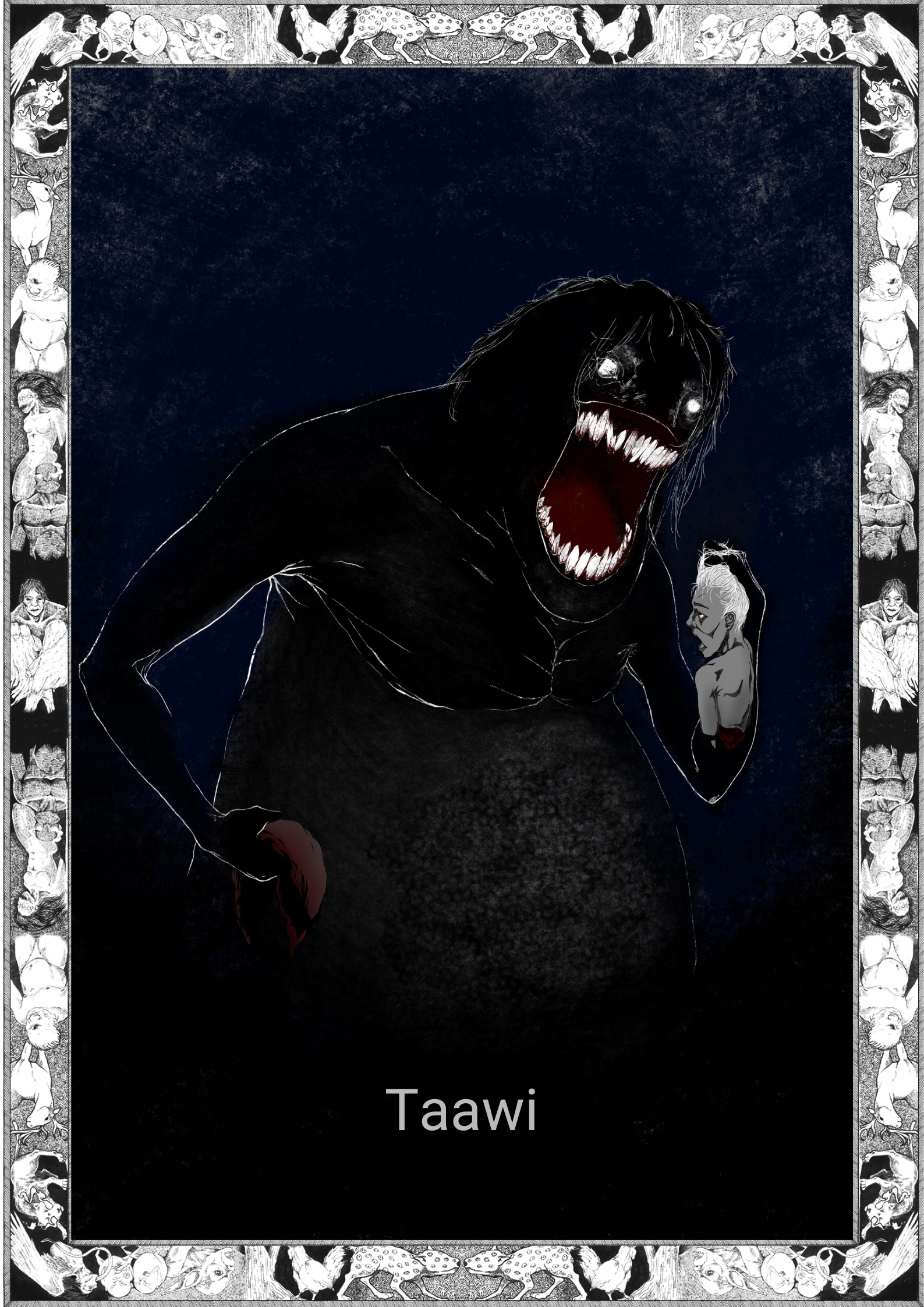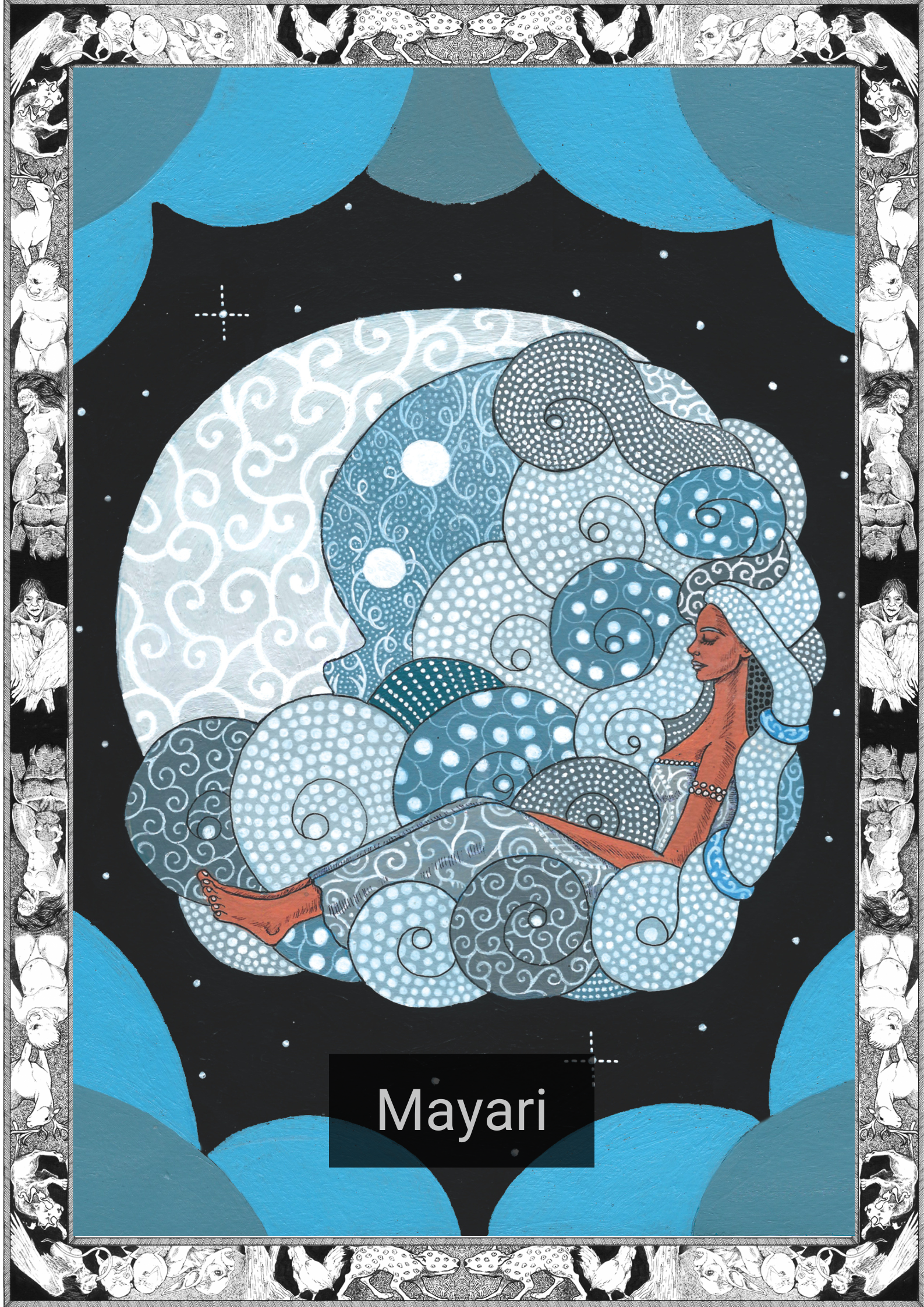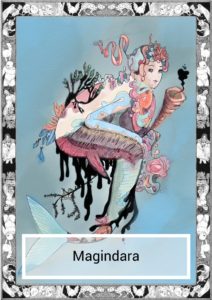
*Note this story is in Cuyonon
Ingsasampok i’ ang daloyon ang olo ‘ang manigpangisda. Agakapaykapay tana apang indi enged agpadaeg ang bagio kanana. Rinibo-ribo ang orang agararamatak sa kadagatan nga ara’ korti ni anio, apang naelaman nang magapoas da dia. Tana ara nanda idaran digi agod malemes lamang ig magasarig tana kananda tegka sa teregkan anang kaboi.
Nademdeman na ang loa sa mata ‘ang anang ina datong pilakan na ang rosario. Ingaadlekan manda ang anang ina para kanana apang mas mi labet tana sa kalag i’ anang bata. Ang manigpangisda bata i’ anang ama ig agapadayon pa ra sa pagparet sa mga laging kinaogalian ay ang tobig dian sa anang dogo.
Agpakiloy anang ina nga magsarig sa anang manonobos, andang manonobos. Ingpakolay tana anang ina nga demdemen ang manonobos nga dato sa gegma ig sanag, apang ara tana ipamati kanana. Indi enged mamaramadan anang ina ang kaboi sa laod, ang mga manigbantay nga agprotiktar kananda.
“Mangalok ‘ang Dagat” –dato maman andang tawag kananda. Ingkakatikati kono i’ ang mga diwata ang mga manigpangisda paagi sa andang mga kansion. Malemes ngani ang mga manigpangisda sanda kono kakaenen den. Nabebereng tana kong ayamo boi pa ra ang botig nga dato ig ingpaparetan pa ra ‘ang matamang tao. Naelaman i’ ang mga manigpangisda nga ang mga istoriang dato mara sa trapo nga agaponas sa dinagon dong paggalang ig pagdayaw sa mga diwata.
Ara tana ra maboboat. Ingoman den i’ ang mga dagon kong kino magadarangep ang mga tao sa oras andang kaministiran. Ara reng mga alad sa dagat ig mga pangadi sa mga daloyon. Tana ren lamang ang nasala. Ang kaoriang bata i’ ang tagomatayen deng tinooan.
Ingroroyan den ang betken i’ ang manigpangisda. Magaampo ron ang anang lawas sa ara’ tadeng nga pagtampek i’ ang daloyong ig oran. Ingisip na anang ina ig agpanindegan tana sa anang pagtoo. Aganiani ang anang mga bibig i’ oring pangadi bago agtagbeng anang olo sa daloyong:
Ang tobig ang akeng gabayan paoli
Magasarig ako kanindo
O mga diwata i’ ang dagat ig bagio
Ang delem mamaimong sanag
Ang mga daloyong magalinaw
Magaimbeng ako sa dagat
ig magaayad ang tanan-tanan.
English Back Translation
The waves crush over the fisherman’s head. He flayed his hands but the storm will not let up. Thousands upon thousands of rain poured onto the shapeless ocean, but he know that this too shall pass. They did not bring him here to drown and he will trust them until the end of his life.
He remembers the tears in his mother’s eyes when he tossed her rosary. His mother was indeed scared for him, but she’s more concerned for her son’s soul. The fisherman was his father’s son and carried on believing in the old ways because the water was in his blood.
His mother begged him to trust his saviour, their saviour. She had raised him to remember that saviour in love and light, but he couldn’t listen to her. His mother could never understand the life at sea, the guardians that protected them.
“Mangalok ‘ang Dagat” –that’s what they called them. They say that the spirits lured fishermen into the water with their songs. Once the fishermen were drowned they will then eat them. It still surprised him how long that lie had lasted and how many people still believed in it. The fishermen knew those stories are like rags that wiped the centuries of respect and admiration of the spirits.
There was nothing he could do though. The years had changed who people turned to in their times of need. There were no more offerings by the sea, or prayers to the waves. He was the only one left. The last son of a dying belief.
The fisherman’s arms are getting weak now. His body is finally surrendering to the endless onslaught of the waves and the rain. He thinks back to his mother and stays firm in his conviction. His lips whisper one final prayer before his head goes beneath the waves:
The water is my life-saver as I go home.
I will trust in you
Oh spirits of sea and storm
The darkness will turn into light
The waves will calm
I will be with the sea
and everything will be alright.
————————–
*Cuyonon is a regional Visayan language spoken on the coast of Palawan, and the Cuyo Islands in the Philippines.
Written by Karl Gaverza
Cuyonon Translation provided by Ryan D. Ibañez and Elyn Grace Bagalay
Copyright © Karl Gaverza
Translation Copyright © Ryan D. Ibañez and Elyn Grace Bagalay
Inspired by the Magindara entry in Bikol Beliefs and Folkways: A Showcase of Tradition. Nasayao 2010.
Magindara Illustration by emirajuju
IG: https://www.instagram.com/
Watercolor by Mykie Concepcion
Tumblr: http://
